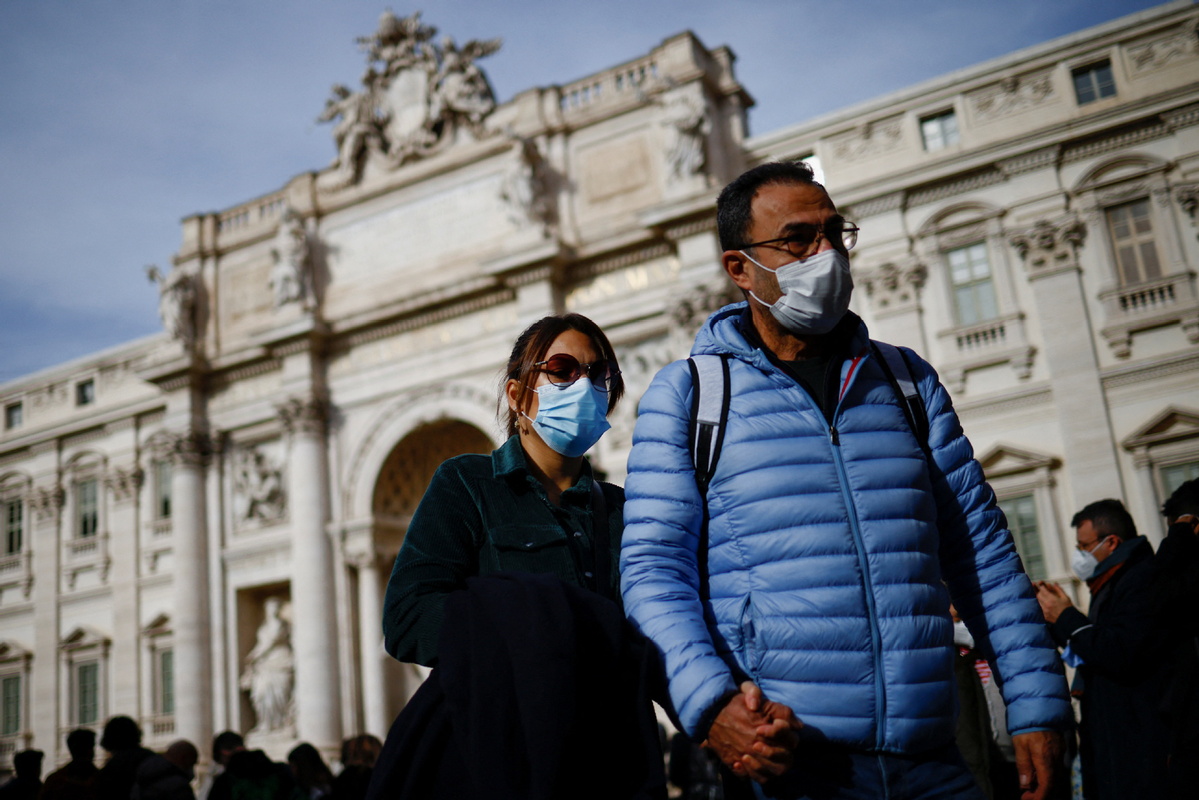WHO warns of tidal wave of infections


Over half in agency's Europe region likely to get virus within 2 months
The World Health Organization has warned that more than half of the people in its European region will be infected with COVID-19 in the next two months as several countries report record numbers of new cases.
The region, which covers 53 countries in Europe and Central Asia, reported more than 7 million new cases in the first week of 2022, more than doubling over a two-week period.
Fifty of the countries have now reported cases of the new Omicron strain, which is quickly becoming the dominant variant in Western Europe and is now spreading in the Balkans, according to the WHO.
While the mortality rates remain stable, they are the worst in countries with high COVID-19 cases and lower vaccination rates.
"Today, the Omicron variant represents a new west to east tidal wave sweeping across the region, on top of the Delta surge that all countries were managing until late 2021," Hans Kluge, WHO's regional director for Europe, said on Tuesday.
He cited a forecast by the Institute for Health Metrics and Evaluation that at this rate, more than 50 percent of the population in the region will be infected with Omicron in the next six to eight weeks.
Omicron is highly transmissible because the mutations it has enable it to adhere to human cells more easily and it can infect even those who have been previously infected or vaccinated, according to the WHO, citing data in recent weeks.
On Tuesday, France reported a record 368,149 new cases, with the seven-day average staying at 280,000. On Wednesday, Germany reported 80,430 new infections.
Belgium, with a population of 11 million, reported an average of 21,874 new cases in the week to Jan 8, a hike of 96 percent from the previous week, according to government health authorities on Wednesday.
While countries in Western Europe have higher vaccination rates, 20 countries in the region have vaccination rates below 50 percent, including the lowest of 15.2 percent for Kyrgyzstan, 22 percent for Bosnia and Herzegovina and 24 percent for Armenia.
Rising hospitalizations
The unprecedented scale of transmission of the Omicron variant has resulted in rising hospitalizations and threatens to overwhelm the health systems in many countries, according to the WHO.
Poland became the latest European nation on Tuesday to record 100,000 deaths related to COVID-19, joining Russia, the United Kingdom, Italy, France and Germany that have hit the number.
Maria Van Kerkhove, the WHO's technical lead on COVID-19, said on Tuesday that the agency had to change the epidemic curve in cases reported last week due to the explosive numbers-15 million new cases and 43,461 deaths worldwide.
"Omicron is not mild and Omicron is not flu or the common cold, SARS-CoV-2 is not endemic yet. Now is not the time to give up," she said.
Greece's health authorities on Tuesday approved an additional fourth injection of a COVID-19 vaccine for people with compromised immune systems, and several countries are also moving in this direction.
But the European Medicines Agency on Tuesday expressed doubts about the need for a fourth shot.
"While use of additional boosters can be part of contingency plans, repeated vaccinations within short intervals would not represent a sustainable long-term strategy," Marco Cavaleri, the EMA's head of vaccines strategy, told a news briefing.
Kluge said that how each country now responds must be informed by its "epidemiological situation, available resources, vaccination uptake and socioeconomic context".































